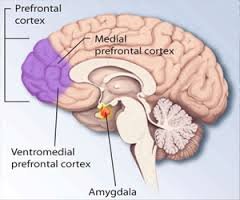Gamification 4: How to motivate fat bastards
So, in our attempts to lose weight, my brother and I found that permission to abuse the loser of the week was not much incentive. It didn't work.
Adding group dynamics – the pressure to not fail the team – helped to some degree, but was still lacking drive. This essay is the exploration of the missing element, the va-va-voom that would drive us to fitness.
Why didn’t the group thing work? Because there was no outside adversary to beat, no prize to claim that we did not just give ourselves. We could have set up a ticking clock- ‘Get down to 190kg combined before December 25’ for example, but so what if we failed? So what if we succeeded? What was the incentive?
In short, there was nothing on the line. How can people engage their passion for something that isn’t desirable and/or slightly dangerous? The neurology of winning vs not-losingThere are two mental modes in competition – to win, and to not lose. They are very different, and take up different areas of the brain.
To avoid failure, a person will use four parts of their brain from the amygdala to the medial prefrontal cortex that will slow processes down, look for threats, and help avoid mistakes.
medial-cortex
It makes you wary of failure and causes a focus on your errors, in order to eliminate them. Which, ironically, makes you more likely to perform those errors.
Have you ever had the thought ‘Now, it’s easy from here, all I have to do is to not stuff up.’ And then you stuff up? That is exactly this mode in operation. It will help you learn, but not to win.
On the other hand, when you see people passionately pursue a goal, hormones kick in that dampen the amygdala and ramp up the reward centre. In this mode, errors are unimportant, details immaterial. Only the goal matters.
Which is why, in sports, we can sometimes see the underdogs, with nothing to lose and all odds against them, surge forward, keep the momentum much longer than their opponent, and achieve an improbable, adrenalin-fuelled win.
In their book ‘Top Dog’, Po Bronson and Ashley Merryman cite statistics from penalty shootouts soccer tournaments. Shooting at the same goal from the same spot, with the situation being that if they score, their team will win, the shooter will score 92% of the time. If the situation is different – that if they score, their team will merely be saved and tie the game, the success rate is only 62%.Using the ‘win’ mode is 30% more successful than striving not to lose!
Not just in sports either – the same effect is evident in academic and social life. Nothing to lose vs nothing to gain. Last year I was umpiring a cricket match between a professional international women’s cricket team and Melbourne Grammar boys’ first eleven.The skills of the women were superb – they batted flawlessly, fielded like a well-heeled baseball team, bowled tightly, and lost. They had all kinds of pride on the line for losing, and were expected to win, so never took their chances, and lost to a bunch of teenage cowboys with nothing to lose, no expectation of a win, who threw caution to the wind and had a bash.There was no incentive for the women to win – just to not lose. There was no material prize on offer for the boys either, but it made for a ripper story to tell on Monday.So what could the women possibly have focused their win-attention on? What trophy could they imagine holding? What celebration to enjoy?This is important when designing game elements for your life – make sure that you are designing for a win, not just the avoidance of a loss. A goal-starved brainSo often in real life, we only operate in the avoid-negative mindset. We are taught this throughout school ‘Don’t fail this test’ ‘Do this or else’, and it carries on into our adult life ‘Need attention to detail’ ‘Make sure all books are balanced’.And as noted by Bronson and Merryman, loss avoidance is a mindset important in many occupations, from chemist to teacher, to the guy who brewed my coffee this morning. Epic wins don’t count much to the career of a pilot if one in ten flights features a vital flaw.But we do need this surge. We need to get into the habit of striving for a win. This is why games, sports and skill-progressive hobbies are important. You could strive for the next level in your Spanish class, or cake-decorating, and get used to winning.Gym junkies push their own strength for greater weights pushed or distances run. What you think of them is immaterial – they aren’t doing it for you, they are doing it to activate the goal-achieving part of their own brain.
So rarely do we get to engage this mode that we forget what it is like, and many tend to live vicariously through being a fan of some football team or other rather than doing it themselves.
Back to the fat bastards.
In competition with my brother, the reward of ‘I get to call you fat bastard if I lose more weight than you’ does nothing positive, hence we would have a mindset of not stuffing up, so we would stuff up.
We needed a better reward. One with sentimental meaning. Some people may respond well to a monetary incentive, but this largely depends on their attitude to money, which is not always positive. Most respond better to something they can visualize as an object that represents their victory. Some families might have objects of importance between them, from a distinctive piece of jewellery, to a trinket from an overseas trip. A friend and I used to play snooker against each other where the only prize was a misshapen potato chip in a candy capsule.Sentimentality is more important than money.For example, in cricket, there is no more highly sought-after prize than:
The Ashes.
Materially, it is worth nothing – a joke urn make when Australia first beat England, made to celebrate ‘the death of English cricket’. And yet, the passion for that urn will incite players to fight beyond their ability, bleed for it, endure broken ribs and jaws.
For us, a bottle of Maker’s Mark will do. It looks distinctive, and has good feelings associated with it. I can picture it, I can taste it, and I have foresworn off any whiskey until I have it, just so I want it more. Mutual goals.
Rather than being head-to-head, by brother and I are now side-by-side, both reaching for the same goal.To add personal stage markers, I have drawn capsules on my white-board.100-98kg, 98-96kg and 96-94kg.
I can visualize colouring in more of each capsule, celebrate achieving these milestone goals, and I do not erase anything for a backward step so that I don’t fall into a negative mindset, and know what I have to do to reach the next mini-goal.Motivation for youWith life goals, almost everything can be turned into a capsule of achievement, even if it is ‘100 accident-free days’.
One company I heard of has a ‘safety bear’ awarded to the most responsible person of the month, and that bear carries great pride and sentiment.So look for opportunities to turn a head-to-head competition into one with a mutual and sentimental goal, so that competitors can enjoy a competition together, without feeling mean about it.







